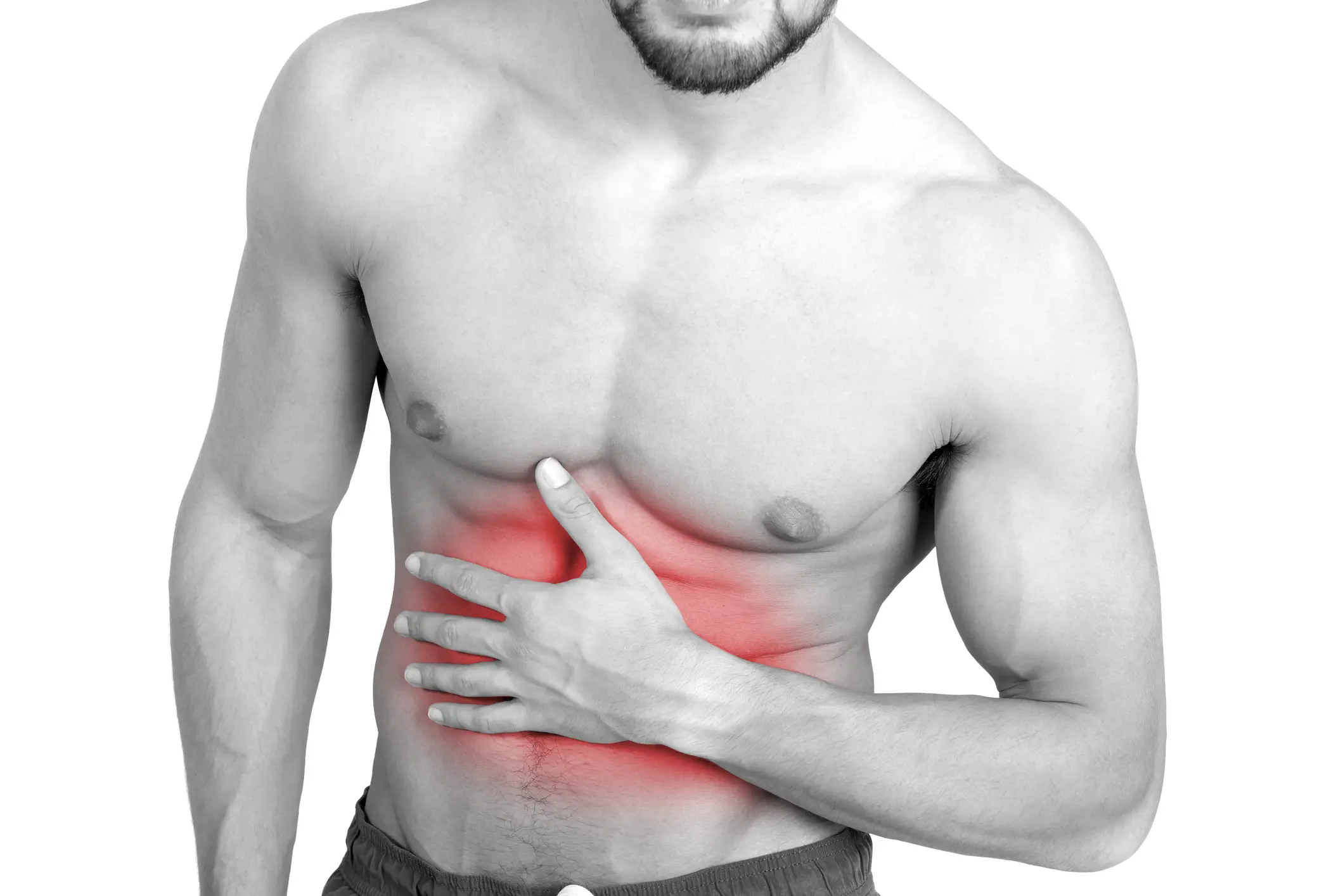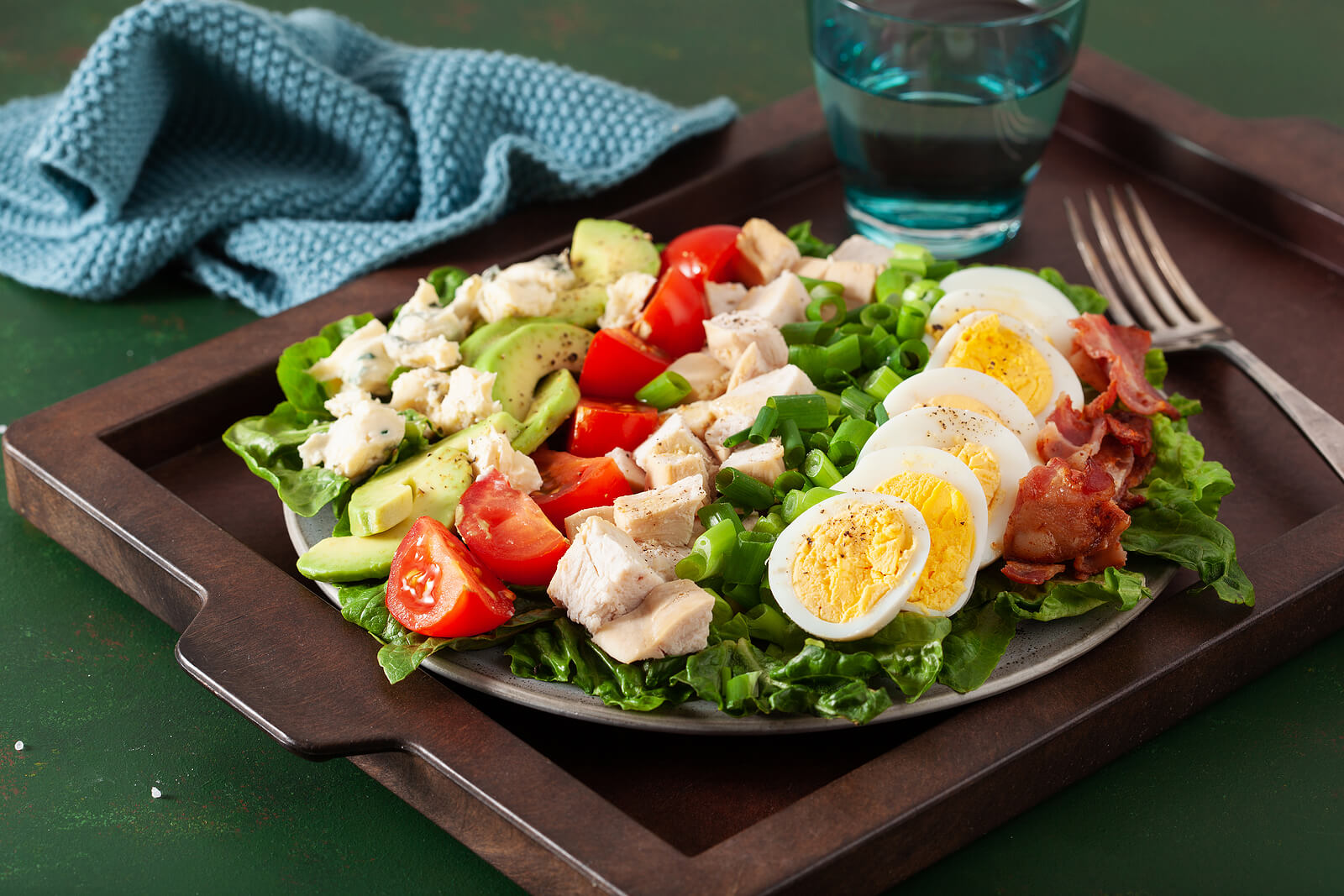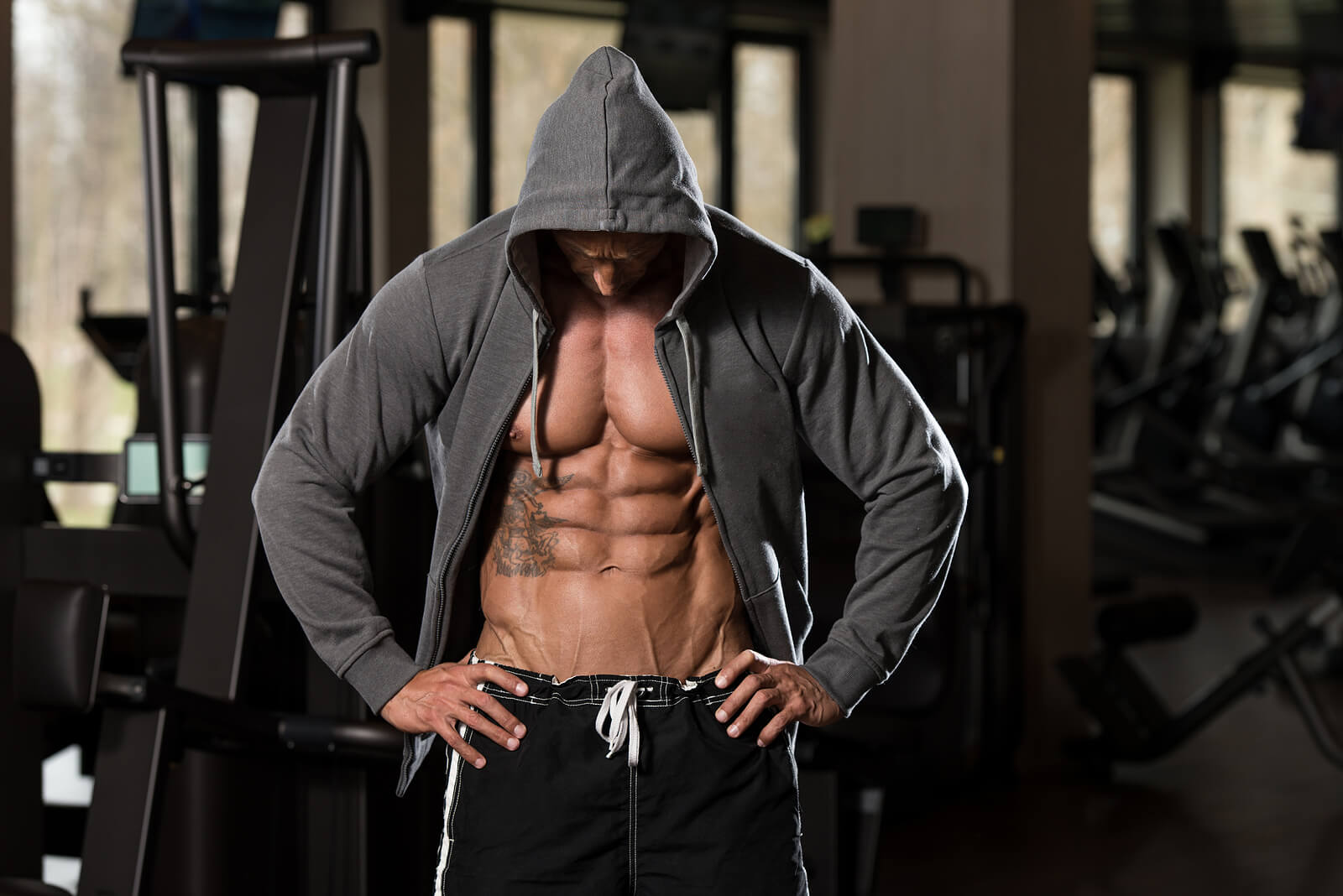Are you experiencing sore abs after a workout? It’s a common issue that many people face, especially when starting a new exercise routine or increasing the intensity of their workouts. Sore abs can make it difficult to perform daily activities and exercise, but there are ways to alleviate the pain and speed up the healing process.
One of the best ways to heal sore abs fast is to rest and give your muscles time to recover. Overworking your abs can cause more damage and prolong the healing process. However, resting doesn’t mean you have to be completely inactive.
Light activities such as walking or stretching can improve blood flow to the muscles and aid in the healing process. Applying ice or heat to the affected area can help reduce inflammation and alleviate pain.
Understanding Sore Abs
Sore abs are a common issue that many people experience after exercising or engaging in physical activity that involves the core muscles. Your core muscles include the rectus abdominus, oblique muscles, and transversus abdominus muscles, which all play a significant role in stabilizing your spine and pelvis.
Sore abs can be caused by a variety of factors, including muscle strain, muscle soreness, muscle fatigue, injury, or even a hernia. It is essential to understand the cause of your sore abs to determine the best course of action to alleviate the pain and promote healing.
Muscle strain or pulled stomach muscle is a common cause of sore abs. This type of injury occurs when the muscle fibers are stretched or torn due to overexertion or sudden movements. Symptoms of muscle strain include pain, stiffness, and bruising, which can be felt in the affected area.
Muscle soreness is another common cause of sore abs. This type of soreness is typically felt after engaging in physical activity that your body is not accustomed to, such as starting a new workout routine or increasing the intensity of your current routine. Muscle soreness can be alleviated by stretching, rest, and proper nutrition.
In some cases, sore abs can be a sign of a more severe issue, such as a hernia or abdominal pain. If you experience severe pain, swelling, or discomfort, it is essential to seek medical attention immediately.
In conclusion, understanding the cause of your sore abs is essential to promote healing and alleviate pain. Whether it is due to muscle strain, muscle soreness, or a more severe issue, taking the necessary steps to care for your body is crucial. With proper rest, nutrition, and medical attention if necessary, you can heal your sore abs and get back to your daily activities.
Causes of Sore Abs
If you’re experiencing sore abs, it’s important to identify the cause of the pain so you can take the appropriate steps to heal quickly. Here are some common causes of sore abs:
Repetitive Movements
Repetitive movements, such as twisting or bending, can strain your abdominal muscles and lead to soreness. If you perform the same movements repeatedly, your abs may become fatigued and sore.
Accidents
Accidents, such as falls or car crashes, can cause trauma to your abs and lead to soreness. If you’ve recently been in an accident and are experiencing abdominal pain, it’s important to seek medical attention right away.
Sneezing
Believe it or not, sneezing can cause sore abs! When you sneeze, your abdominal muscles contract quickly, which can cause strain and soreness.
Working Out
Working out, especially if you’re doing core work, can cause sore abs. When you exercise, you’re essentially tearing your muscles so they can rebuild stronger. This process can cause soreness and discomfort.
Delayed-Onset Muscle Soreness (DOMS)
Delayed-onset muscle soreness, or DOMS, is a common cause of sore abs. DOMS occurs when you perform an intense workout that your body isn’t used to. The soreness usually sets in 24 to 48 hours after the workout.
Sports
If you play sports that require a lot of twisting or turning, such as soccer or basketball, you may experience sore abs. The repetitive movements can strain your abdominal muscles and lead to discomfort.
In conclusion, there are many causes of sore abs, from repetitive movements to working out. By identifying the cause of your soreness, you can take the appropriate steps to heal quickly and prevent future discomfort.
Preventing Sore Abs
If you’re looking to heal sore abs fast, the best approach is to prevent soreness from occurring in the first place. Here are some tips that can help:
Warm Up and Cool Down
Before you start any exercise routine, it’s important to warm up your muscles. This can help prevent injury and reduce soreness. A good warm-up should include some light cardio, such as jogging or jumping jacks, as well as some dynamic stretching. After your workout, make sure to cool down with some static stretching to help your muscles relax.
Incorporate a Routine
A regular exercise routine that focuses on your abs can help prevent soreness by gradually building up your strength. Start with some basic exercises, such as crunches or sit-ups, and gradually add more challenging moves over time. A personal trainer can help you develop a routine that’s tailored to your fitness level and goals.
Focus on Form
Proper form is essential when it comes to preventing sore abs. When doing exercises such as planks or twisting movements, make sure to engage your core muscles and avoid any jerky or sudden movements. Pilates and yoga can be great ways to improve your form and build core strength.
Take Breaks
Overtraining can lead to soreness and injury. Make sure to take breaks between workouts to give your muscles time to recover. If you’re feeling particularly sore, it’s okay to take an extra day or two off from exercising.
Listen to Your Body
Above all, it’s important to listen to your body. If you’re feeling overly fatigued or experiencing pain, it’s time to take a break. Pushing through the pain can lead to further injury and prolong your recovery time.
Initial Response to Sore Abs
If you’ve recently worked out your abs and are now experiencing soreness, there are several things you can do to help alleviate the discomfort. The initial response to sore abs should focus on reducing inflammation and swelling. Here are some steps you can take:
Cold Therapy
Applying cold therapy to the affected area can help reduce inflammation and swelling. You can use an ice pack or a bag of frozen vegetables wrapped in a towel and apply it to your sore abs for 15-20 minutes at a time, several times a day. Make sure to never apply ice directly to your skin, as it can cause damage.
Over-The-Counter Pain Relievers
Over-the-counter pain relievers, such as ibuprofen or acetaminophen, can help alleviate the discomfort associated with sore abs. Ibuprofen is a nonsteroidal anti-inflammatory drug (NSAID) that can help reduce inflammation, while acetaminophen is an anti-inflammatory that can help reduce pain.
Gentle Stretching
Gentle stretching can help alleviate soreness and improve flexibility. Try to stretch your abs gently, holding each stretch for 15-30 seconds. Don’t overdo it, as excessive stretching can cause further damage.
Rest
Rest is essential for allowing your muscles to heal. Avoid any strenuous activity that could aggravate your sore abs, and give your body time to recover.
By taking these initial steps, you can help reduce inflammation, alleviate pain, and promote healing. If your soreness persists or worsens, be sure to consult with a healthcare professional.
Promoting Healing and Recovery
When it comes to healing sore abs, promoting healing and recovery is essential. Here are some ways you can help your body recover faster:
- Blood Flow and Circulation: Increasing blood flow and circulation to your abs can help speed up the healing process. You can do this by using a heating pad, warm compress, hot water bottle, or taking a warm bath. Epsom salts can also help increase blood flow and reduce inflammation. Try taking an Epsom salt bath a few times a week.
- Massage and Foam Rolling: Massaging your abs can help increase blood flow and reduce soreness. You can use a foam roller or a massage ball to target specific areas. Foam rolling can also help with post-exercise soreness and muscle recovery.
- Active Recovery: Light exercise can help promote healing and recovery. Try doing some low-impact exercises like walking, swimming, or yoga. This can help increase blood flow to your abs and reduce soreness.
- Sleep: Getting enough sleep is crucial for promoting healing and recovery. Aim for 7-9 hours of sleep per night. This can help reduce inflammation and promote muscle recovery.
- Protein: Eating protein-rich foods like chicken and salmon can help promote muscle recovery. Protein is essential for repairing and building muscle tissue.
- Antioxidants: Antioxidants can help reduce inflammation and promote healing. Try incorporating antioxidant-rich foods like cherries, ginger, and turmeric into your diet.
- Hydration: Staying hydrated is important for promoting healing and recovery. Aim for at least 8 glasses of water per day. You can also try drinking cherry juice, which has been shown to reduce muscle soreness.
By incorporating these home remedies into your routine, you can help promote healing and recovery for your sore abs.
When to Seek Medical Help
If you have sore abs, you may be able to treat the pain at home with rest, ice, and over-the-counter pain relievers. However, there are some situations where you should seek medical help. Here are some signs that you should see a doctor:
- Severe pain: If your abdominal pain is severe and doesn’t improve with rest or over-the-counter pain relievers, you should seek medical attention. This could be a sign of a more serious condition, such as a ruptured spleen or appendicitis.
- Abdominal brace: If you have recently had surgery on your abdomen and are wearing an abdominal brace, and you experience severe pain, you should seek medical attention. This could be a sign of a problem with the surgical site.
- Physical exam: If you experience severe abdominal pain, your doctor will perform a physical exam to determine the cause of your pain. They may also order tests such as blood work or an X-ray to help diagnose the problem.
- X-ray: If your doctor suspects that you may have a broken bone in your abdomen, they may order an X-ray to confirm the diagnosis.
- Broken bones: If you have a broken bone in your abdomen, you will need medical attention. Your doctor may recommend rest, immobilization, or surgery to help the bone heal.
In general, if you have severe abdominal pain, it’s important to seek medical attention. Your doctor can help determine the cause of your pain and recommend the appropriate treatment.






Leave a Reply